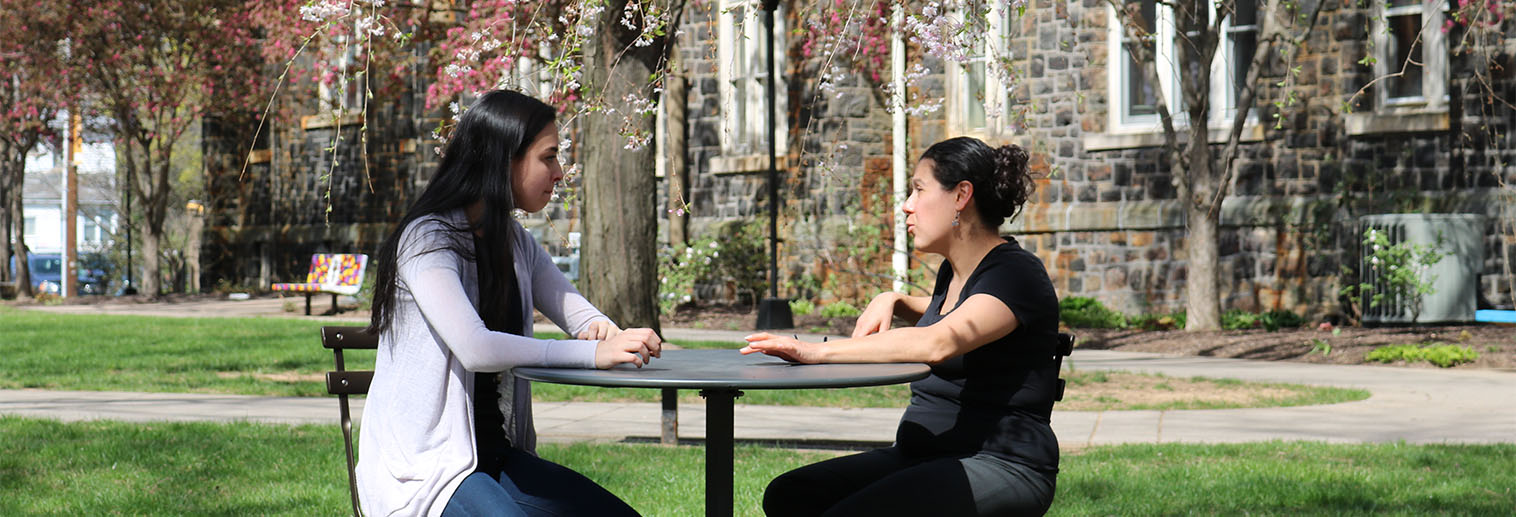Mo-Comidas
Sandra Aguilar-Rodríguez receives a grant for research into food traditions and consumption in low-income communities.
The relationship communities and cultures have with food has always been of interest to Sandra Aguilar-Rodríguez, assistant professor of history. “I am very interested in food, consumption, and the process of modernization and how it affects our relationship to food,” says Aguilar-Rodríguez. “When I lived in Mexico, I was fascinated to observe the migration of people from the country to the cities and the effect of that change on human interaction with food.”
While pursuing graduate studies in Great Britain, Aguilar-Rodríguez was forced to explore her own relationship with food. “For me, food at the University was very bland,” she says. “I couldn’t imagine eating in the cafeteria for six years, so I learned to cook.”
Learning to cook and discovering other food cultures in the very international environment in which she lived further awakened Aguilar-Rodríguez’s appetite for the study of food and food consumption within today’s communities and particularly among lower-income households, which is the focus of her current research.
Aguilar-Rodríguez grew up in Mexico City and in 2002 left for England to pursue a master’s degree in Latin American studies at the University of Oxford and then a PhD in women’s studies at the University of Manchester. In 2008, she crossed back over the Atlantic for a postdoctoral position at Lehigh University, and then joined Moravian University in 2010 to teach Latin American history.
Inside Moravian sat down with Aguilar-Rodríguez in her 3rd floor Comenius office overlooking the spring-blossomed quad to learn more about her role in the community project that has been recently awarded a grant from the National Endowment for the Humanities (NEH) and her passions in research and teaching.
Inside Moravian: Congratulations on your NEH grant! What work does this grant support?
Sandra Aguilar-Rodríguez: The title of the project is Food in the Public Square, and the overarching goal is to explore the relationship between people—particularly those in lower-income communities—to food and the consumption of food and to involve members of the community in conversations that delve into topics such as how people obtain, prepare, eat and discard food; inequities in the food system; food insecurity; the region’s food history; and how the changes in the way food is grown and distributed affect individuals and communities. I will be working alongside five other scholars one from Northampton Community College (NCC), Lehigh University, Brown University, Lafayette College, and Bucks County Community College.
There are many expert voices speaking out about what we should eat, about food safety, food supply, and so forth, but this project aims to bring the community to the table, so to speak, and into the discussion. Rather than lecture to local groups and prescribe a certain way of thinking about food and its consumption, we want the relationship to food within these communities to be engendered by discussion and participation, and we’ve organized three large public forms and several workshops that will take place throughout the summer and into the early fall to foster community.
I will be directing the program My Grandparents’ Kitchen in partnership with The Hispanic Center of the Lehigh Valley. We are planning five workshops, spread out from June through September, during which community participants will share recipes from their respective countries of origin, prepare and eat meals together and tell stories from their food history and culture. We’ll collect the recipes and stories into a community cookbook, and the entire experience will be recorded and shared at the final forum as well as on web and social media platforms.
IM: Will your students have any involvement in this program?
S A-R: Yes, next semester my students will be working on projects related to Food in the Public Square and Velvet Alvarez will begin work with me this summer on a SOAR project.
IM: As a teacher, what are your goals and hopes for your students?
S A-R: I have two concerns for students. I want them to be aware of U.S. foreign policy toward Latin America and how that policy shapes both Latin America and the U.S. I am particularly interested in highlighting the connection between Latino immigration and the U.S. economic and political role in the region--in brief, the disruption and violence caused by Latin American dictatorships supported by the United States in the 20th century, which generated the conditions that forced Latin Americans to move to the U.S.
Secondly, I encourage conversation about race. It seems that students rely only on what they’ve learned in their textbooks, which isn’t very much, prior to coming here. Americans do not talk about race, and it’s extremely important to do so in a nation in which segregation has been the dominant approach. I want students to realize the historical roots of racial understandings and think about these issues from the perspective of Latin America.
So, I hope to make a contribution to opening students’ minds, even if just a little bit.

